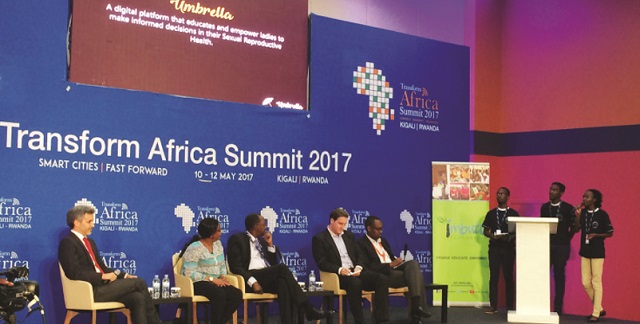
African startups can now score capital commitments real time―so long as they convince a venture capitalist to give it to them in front of a live audience.
Rwanda |Jake Bright| That’s the format for Face The Gorillas, a Rwandan IT pitch series that runs several times a year on local TV, YouTube, and at select events.
The competition was originally conceived in 2013 by Yariv Cohen and wife Angela Homsi―who became engaged in Rwanda’s tech scene through impact investment firm Kaenaat and the Ignite Power Solar initiative.
“We were supporting the ICT sector, brought a group…to invest in startups, then turned that into a show,” Cohen told TechCrunch in his Kigali office. “The idea was to provide Rwandan startups business pitching tools and an understanding of what investors are looking for,” he said.
Face The Gorillas has since teamed up with Rwanda’s ICT Chamber and partners such as kLab to produce the series several times a year. Since 2013 it has run 8 instalments, financed 8 startups, and had 3 deals rejected, according to Cohen. Ventures can gain up to $200,000 in investment, including accelerator type partnerships.
In 2015 Rwandan fintech venture VugaPay, founded by college age brothers Patrick Muhire and Cedrick Muhoza, received mentorship and $20,000 for 10 percent equity from two VC gorillas. The exposure led them to a subsequent investment from Silicon Valley investor Tim Draper.
According to Cohen, Face The Gorillas is open to startups across the continent. Once a date and venue are set, “We put out requests for proposals to all the ICT hubs. Select the ones we think are investible―coach them, train them―then they come and pitch,” he said.
While the series’ on the spot equity deal-making is similar to America’s Shark Tank, there are a few distinct differences. Face The Gorillas is only open to tech startups. The show takes a more constructive tone: “we select VCs who focus more on help and mentorship than just the investment itself,” said Cohen. Face The Gorillas also customarily gives investors in the crowd a chance to make competing offers to the VC panel. “The last three shows have had deals from the audience,” according to Cohen.
Rwanda’s Transform Africa Summit has become one of Face The Gorillas’ more visible venues. At the May 2017 event, young startup founders such VugaTV entrepreneur Ines Muhoza, gave 5 minute pitches to Cohen and the investor panel before navigating questions toward possible offers. While the CEO of the content streaming app didn’t receive a deal, she was positive about facing the gorillas. “The resource I got today was knowledge…to come up with convincing factors so investors will invest in me next time,” she said.
One investor who offered Muhoza counsel was Eugene Nyagahene, a Rwandan media executive and entrepreneur with a $500,000 fund. As a VC gorilla, he said he looks “first for the entrepreneur’s passion for their business, then their figures. If one of these two does not work, I don’t invest,” he said.
Both appear to have aligned at Transform Africa 2017, where Nyagahene joined a $35,000 investment for 18 percent equity in solar utilities startup Ibaze Group―the closing of which drew enthusiastic applause.
So could Face The Gorilla’s soon syndicate across Africa? “We’ve had requests and are looking at that,” said producer and investor Yariv Cohen. “If we do, we just want to make sure we keep the same theme of education…and a focus on the entrepreneurs rather than just the investors,” he said.
Cohen expects the next Face The Gorillas to take place sometime in fourth quarter 2017. Interested African startups can keep an eye out for details and application info on kLab’s website.
****
Jake Bright is a writer and author in New York City. He is co-author of The Next Africa.
 The Independent Uganda: You get the Truth we Pay the Price
The Independent Uganda: You get the Truth we Pay the Price





 Anthony Natif notes from Court: Prosecution case enters final stretch
Anthony Natif notes from Court: Prosecution case enters final stretch